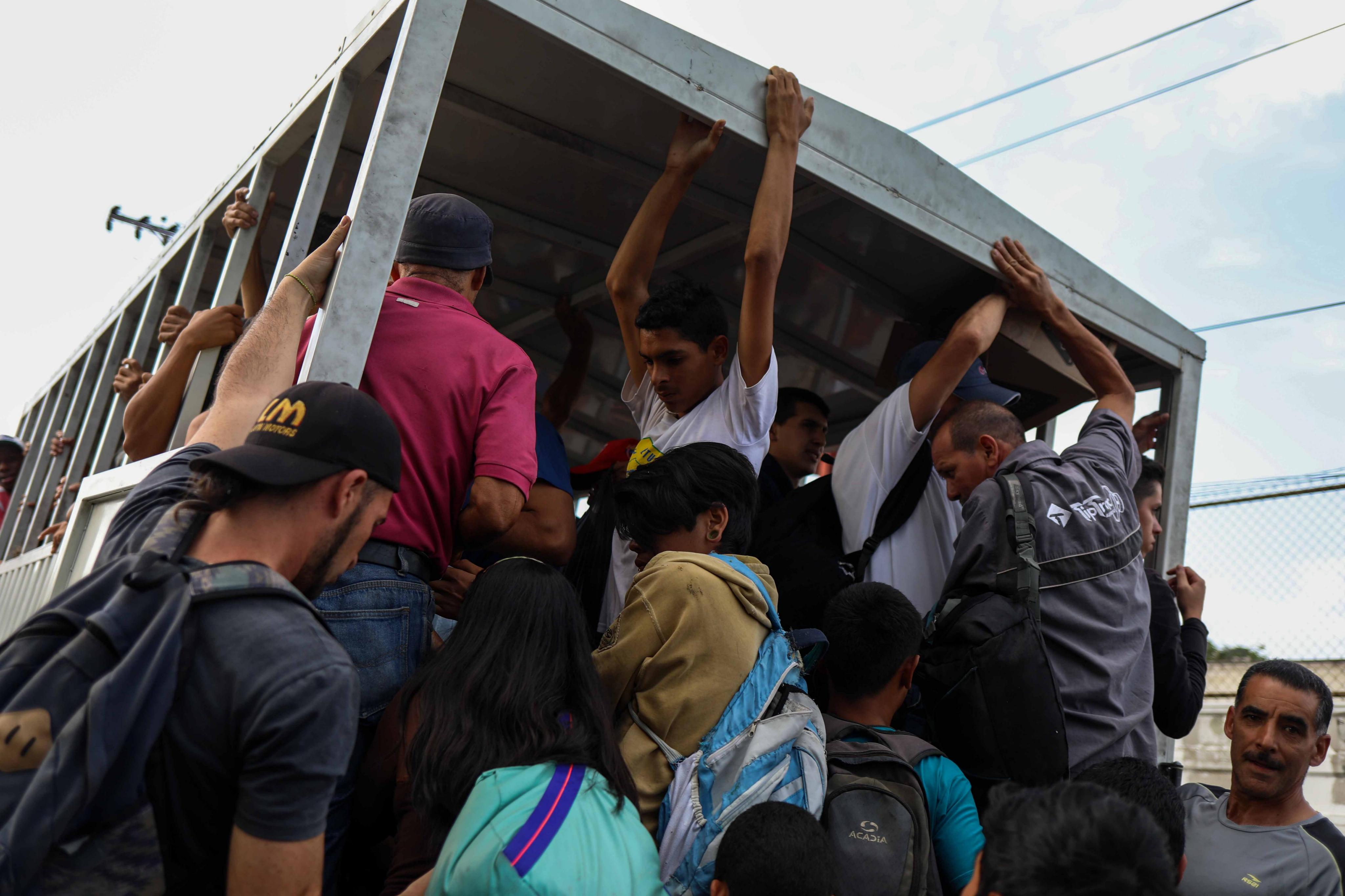
Venezuela crisis: Transportation system collapses
Venezuelans over the past five years have been suffering through the collapse of the public transportation system, which has been decimated by rising prices and the scarcity of spare parts, as well as by the lack of government investment.
The crisis is forcing thousands of users to either walk wherever they need to go or stand in long lines waiting for the "perreras," cargo trucks that belong to the Caracas Mayor's Office or private citizens but without any safety measures for transporting people since there are very few public buses available.
The situation has prevailed in virtually all Venezuelan cities since the end of last year, when hyperinflation began to beset the country, rapidly eroding purchasing power and worsening the already-terrible economic crisis by leading to a lack of basic goods, including food, medicines and auto parts.
Climbing onto a "perreira" may well be taking your life in your hands since they don't have any doors and at least 50 people often try to cram themselves on board the ramshackle vehicles as they creep along dangerous roadways on hills and mountains.
"Every day it's the same: it's chaos," Jesus Garcia, a 59-year-old government employee living in Barrio Paez, told EFE.
CONTENIDO RELACIONADO
"Taking a taxi is impossible, we don't get paid enough," he said, given that an average monthly salary amounts to 2.5 million bolivares - $32 - and a taxi can cost up to twice that much, depending on the route.
The majority of the routes in the capital used to be covered by buses owned by Colectivos del Norte, which used to operate 80 vehicles but which now has only two on the streets due to the lack of spare parts. Most of the buses are almost 50 years old, but about a third of them could return to service if the parts were available.
"We want to work. Who doesn't? We have faith that this (situation) can change," 45-year-old company administrator Luis Bolaños told EFE.
President Nicolas Maduro, however, has claimed in recent weeks that the country's transportation system is being sabotaged and that some drivers are taking bribes not to work in order to "harm the people," a charge that Bolaños calls "a joke."










DEJE UN COMENTARIO:
¡Únete a la discusión! Deja un comentario.